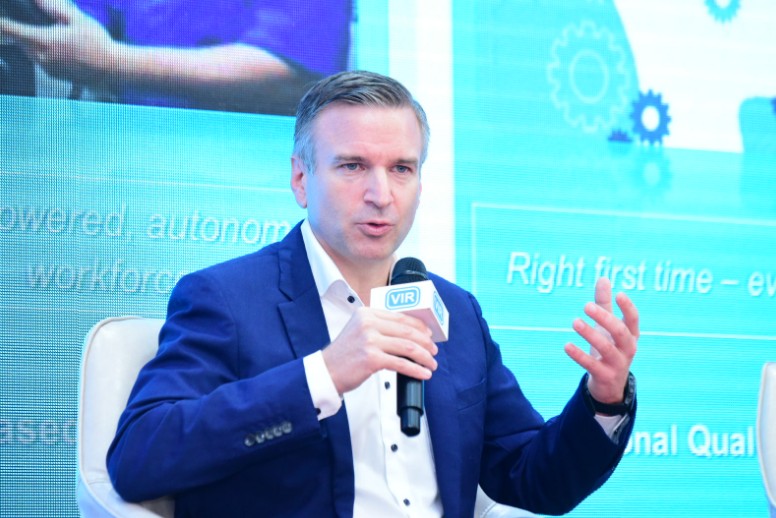Transforming the future: Nestle's journey towards digital transformation
Sharing at the Forum 'Digital Transformation: Faster, Smarter, Greener' organized by the Investment Newspaper on March 21st, Mr. Urs Kloeti, Director of Nestle Bong Sen Factory, Nestle Vietnam Ltd, shared that Digital transformation is not just about technology. It is also about people.

Mr. Urs Kloeti, Director of Nestle Bong Sen Factory, Nestle Vietnam Ltd
A smart factory is not a rosy journey for all businesses. Can you share some highlights in Nestle’s path? How has the smart factory increased the company's operational efficiency and competitiveness in the Vietnamese and global markets?
Nestle’s approach to digital transformation within its operations in Vietnam and globally is to translate this external view of technology trends into meaningful opportunity areas that are well understood and against which we are able to identify savings and/or growth opportunities.
Also, at Nestle, digital transformation is not just about technology. It is also about people. Nestlé uses digital transformation to connect employees at all levels of the organization in a more productive and autonomous manner.We have built some organizational networks from existing teams around each of these focus areas and are now working in each market to coordinate the identification of pain points and match them with the most appropriate application. In most cases, new technologies are identified at the factory/market level and then escalated through the teams.
Digital Transformation brings tangible results to our operations. Some examples are: a) a 60% reduction in down-time, resulting in higher yield and quality by leveraging smart sensors and digitalized data; b) a 50% reduction of paper consumption at the shopfloor by accelerating the digital way of working; and c) a 20% reduction of our maintenance cost through predictive sensors and by upskilling technicians and operators.
Besides digital transformation, sustainable development is an inevitable trend. How is the trend of combining digital transformation with sustainable development being implemented in the manufacturing sector? What are the advantages and challenges?
The digital transformation in manufacturing has helped us make data digital and show us the benefits. With this, we get to see the potential in terms of efficiency and, equally important, sustainability improvement opportunities.
This gives our teams the possibility to evaluate the transformation potential of these opportunities and work on solutions to get the full benefit of them.
Among several improvements, we have reached a reduction in CO2 emissions of 38 000 tCO2e/year. As with digital transformation, the way of working for our employees is changing, and the requirements are increasing. It remains a challenge to ensure that everyone in our organization is capable of keeping up with the change. It is our responsibility to ensure the upskilling of our employees through continuous training and development.
As for leading manufacturers like Nestle, what priorities will the company have to solve this combination in the most effective way?
We will have to continue to digitalize our data by investing in the right tools and technologies. To make use of our data in the best possible way with the support of data analytics, leveraging this connected data for further improvements on sustainability.
In our operations, the priority will remain improving our energy and water consumption, and more long-term, we are using digitalization to support us on our journey to achieve net-zero carbon emissions by 2050.
How has Nestle, as a leading global corporation, brought advanced technologies and solutions for digital transformation and sustainable development to Vietnam to support the country's socioeconomic development and the country's journey to net zero?
We approach the opportunity of digital transformation with a "bottom-line value backward" strategy rather than a "technology forward" strategy. meaning that we will digitalize any part of our value chain where we see it will bring a benefit to Nestle, the environment, and society.
To achieve our goals, we are collaborating with local and global suppliers of these technologies and tools.In the area of sustainability at our factories, we currently have projects on using solar energy, heat pumps for energy recovery, process water recycling, and biomass boiler efficiency improvement. In all these projects, digitalization plays a key role. It is an enabler, bringing us a step closer to our net-zero carbon commitment by 2050.
As Vietnam has made a strong commitment to achieving Net Zero by 2050 at COP26, and given that we have been recognized as the most sustainable company in Vietnam for years, we are proud to have contributed to realizing this commitment through our comprehensive efforts from manufacturing to sourcing.
Sincerely, thank you!








